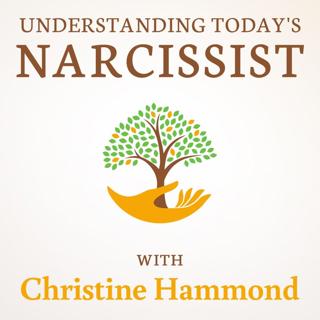
How Not to be Your Boss' Scapegoat
Understand what a scapegoat is. The purpose of a scapegoat is to pass responsibility onto someone else. Usually this person is unsuspecting at first and agrees because they are trying to get along with others. This technique of passing the buck is very common with narcissists, sociopaths, and addicts. Narcissists can’t allow their ego to be tarnished by an error. Sociopaths do it for the sport of it. And addicts do it because accepting fault in one area of their life means being accountable in another. Don’t accept liability. Looking back on the two events, Monica had an opportunity in both events to be honest with her level of responsibility. Instead, she chose to take on things that were not her fault. This did not improve her relationships as the two individuals just saw Monica as a pushover and someone they can continue to take advantage of in the future. Had she refused to be their scapegoat, a level of respect would be achieved instead of contempt. Review past experience. Her feelings of frustration over being a scapegoat ran deep. Upon further examination, Monica realized that her brother used to get her in trouble for his offenses all the time. Her parents, trying to be impartial, told the kids to “work it out.” Her brother’s idea of this was to threaten harm to her if she didn’t agree to take blame. As a demonstration of his determination, he even lit her stuffed animals on fire. Her willingness at work to make excuses for her boss and assistant was subconsciously rooted in the fear her brother instilled. Stop being the scapegoat. Once Monica separated out trauma from past events, she was able to set new boundaries. She began by issuing a written warning with her assistant about her late arrivals and notified Human Resources of her suspicious behavior. Then she researched narcissistic bosses and found other ways to feed his ego. This pacified her boss and neutralized her assistant. Despite a couple of attempts to thwart her boundaries, Monica remained firm. Expose the abuser. Monica knew that eventually she would need to expose the scapegoating technique to prevent other employees from damage. But doing this too soon would mean jeopardizing her job, so she waited and watched. When she saw another employee taking the fall for yet another blunder by her boss, Monica spoke to that person and advised them not to take on the blame. This frustrated her boss, but by then, Monica had established a good enough relationship with Human Resources that her job was secured. Once Human Resources caught on, it was only a matter of time before her boss was removed. Advertising Inquiries: https://redcircle.com/brands Privacy & Opt-Out: https://redcircle.com/privacy
20 Sep 201816min

Narcissist Awareness Grief
Christine introduces the concept of "NAG" with a story of her own client, Sam. She unpacks the symptoms and the 6 stages of NAG which all need to be faced and understood. www.growwithchristine.com Advertising Inquiries: https://redcircle.com/brands Privacy & Opt-Out: https://redcircle.com/privacy
5 Aug 201815min

What You Can Do If Your Teen Seems Narcissistic
Chistine makes suggestions - What You Can Do If Your Teen Seems Narcissistic www.growwithchristine.com Advertising Inquiries: https://redcircle.com/brands Privacy & Opt-Out: https://redcircle.com/privacy
3 Aug 201815min

Shame Based Parenting
Christine talks about "shame-based" parenting. www.growwithchristine.com Advertising Inquiries: https://redcircle.com/brands Privacy & Opt-Out: https://redcircle.com/privacy
26 Juni 201817min

Parents of Narcissist? - It's Not Your Fault
Christine explores the challenges facing parents of narcissistic children, and how to cope. www.growwithchristine.com Advertising Inquiries: https://redcircle.com/brands Privacy & Opt-Out: https://redcircle.com/privacy
26 Juni 201813min

Passive Aggressive Personality Trait
On this edition, Christine unpacks the Passive-Aggressive Personality Traits - they are much like a personality disorder and often show up similar to narcissism www.growwithchristine.com Advertising Inquiries: https://redcircle.com/brands Privacy & Opt-Out: https://redcircle.com/privacy
28 Mars 201814min

Abuse Fog
www.growwithchristine.com Advertising Inquiries: https://redcircle.com/brands Privacy & Opt-Out: https://redcircle.com/privacy
22 Mars 201816min

Trauma Bonding
Christine covers trauma bonds, what they are, how to identify them, and how they can effect us in a relationship with a narcissist. www.growwithchristine.com Advertising Inquiries: https://redcircle.com/brands Privacy & Opt-Out: https://redcircle.com/privacy
15 Mars 201818min





















